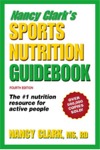|
Just as your car works better when it has fuel in its tank,
your body works better when you give it adequate morning
fuel. Yet, many people push their bodies through a
busy day with an empty fuel tank. The result is low
energy, cravings for sugary foods, a high intake of sweets
and treats, and often undesired weight gain. There's
no doubt in my mind: Breakfast is the most important
meal of the day. Eat up!
Of all the nutrition mistakes you might make, skipping
breakfast is the biggest. It is not uncommon for
early-morning exercisers to learn this the hard way.
Collapsing from low blood sugar after a morning workout
after struggling through an hour long fitness class can get
the point across. If you feel light-headed and dizzy
because you didn't start the day off right, that's a good
indication that you didn't have enough fuel to feed your
brain.
Skipping breakfast can hinder your workouts as well as leave
you drained for the rest of the day. In comparison, a
high-energy breakfast sets the stage for a high-energy day.
Nevertheless, many active people come up with familiar
excuses for skipping the morning meal:
"I'm not hungry in the morning."
"I don't have time."
"I don't like breakfast foods."
"I'm on a diet."
"If I eat breakfast, I feel hungrier all day."
Excuses, excuses. If you skip breakfast, you're likely
to concentrate less effectively in the late morning, work or
study less efficiently, feel irritable and short tempered,
or fall short of energy for your afternoon workout. If
you are a breakfast-skipping parent, your kids are more
likely to skip breakfast, too, and the result is more
snacking, irregular eating patterns, and a poorer-quality
diet-- all of which can influence their energy and weight.
For every flimsy excuse to skip breakfast, there's an even
better reason to eat it.
If you are not hungry for breakfast, you probably ate too
many calories the night before. There are signs of
trouble when people eat a huge dinner at 9:00 p.m., and
mindlessly munch through a bag of chips while watching TV at
night, or devour a bedtime bowl of ice cream as their reward
for having survived a busy day. These snacks can
certainly curb a morning appetite. Unfortunately for
your health, when evening snacks replace a wholesome
breakfast, you can end up with an inadequate sports diet.
Some people have other reasons for skipping breakfast.
Sometimes their morning workout kills their appetite.
However, by 10:00 the appetite comes back again and they end
up raiding the refrigerator or candy machine trying to hold
out until lunch. For these people, it's important to
keep some quick breakfast foods handy such as energy bars,
instant oatmeal, or trail mix. These nourishing meals
are certainly a better alternative to what's in the vending
machines!
For morning exercisers, a wholesome breakfast that combines
carbohydrate with a little protein--cereal with milk,
granola with yogurt, toast with peanut butter--promptly
replaces the depleted glycogen stores and helps refuel and
heal the muscles so they'll be refreshed for the next
training session. The sooner you eat, the more quickly
you'll recover.
A
recovery breakfast is particularly important if you do two
workouts per day. It's not uncommon for triathletes to
say that they're not hungry for breakfast after the first
workout. They then skimp at lunchtime, afraid that a
substantial meal might interfere with their afternoon
workout. They end up dragging themselves through a
poor training session. If they have breakfast, lunch,
or brunch around 10:00 or 11:00, the food will be adequately
digested in time to fuel the muscles that afternoon.
Refreshing liquids throughout the morning, such as juice,
chocolate milk, and smoothies, can help refuel you as well
as quench your thirst. You'll discover that you have
more energy and a better second workout.
Everyone who wants to lose weight knows diets start at
breakfast, right? Wrong! Skipping breakfast to
save calories is an unsuccessful approach to weight loss.
Research confirms that dieters who skip breakfast tend to
gain weight over time. If you are tempted to save
calories by skimping on breakfast, remember that you don't
gain weight by eating this meal. You do gain weight if
you skip breakfast, get too hungry, and then overindulge at
night. If you are going to skip any meal, skip dinner
rather than breakfast. Your goal should be to fuel by
day and eat a little less at night.
A
survey of almost 3,000 dieters who have lost more than 30
pounds (14 kg) and have kept it off for at least a year
reports that 78 percent of the dieters ate breakfast every
day, and 88 percent ate breakfast five or more days a week.
The breakfast eaters also reported being slightly more
active during the day. Another study of breakfast and
weight control suggests that dieters who ate breakfast were
less likely to snack impulsively later in the day and ate an
overall lower-fat diet. You can't go wrong with eating
breakfast!
|
 |
ref. Nancy
Clark's Sports Nutrition Guidebook |
|